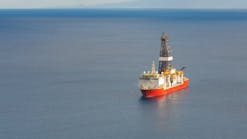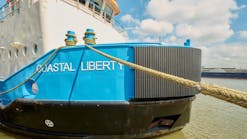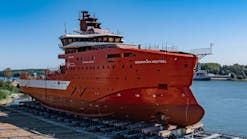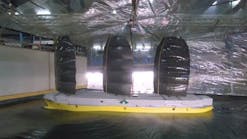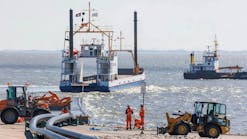It is controversial and urgent. Debate and discussion carry from classrooms to boardrooms, from TVs to radios, and even to ships at sea. This emotional topic, of course, consists of the joint challenges of climate change and sustainable development with the primary question being: How are we going to address this? We believe the answer is that the world needs global solutions. This means nations, NGOs, individuals, and the business world working together as a team.
The seismic industry should not be exempt, even though it is a part of the oil and gas business which is perceived so often as being on the dark side of the environmental debate. In reality, fossil fuels will have a place alongside other energy sources for many decades, so our industry has a key stewardship role to play in making every effort to operate in an environmentally responsible manner.
There have been some in our industry who maintained a business strategy that allowed them to operate with little concern for environmental responsibility and sustainable development. After all, it was fossil fuels, the dark side, plus they did not sell to the public and did not see a profit in operating green.
Polarcus, a marine seismic company launched in 2008, approaches this from the perspective of individual citizens seeking global solutions and recognizes we must be willing to accept economic costs now in order to avoid negative future consequences. We are well aware that we have a significant opportunity within the maritime sphere of our industry to perform our work cleaner and greener. Our goal is to rise up and meet this challenge head on.
In launching Polarcus, we are building an environmentally responsible company that we envision as a model for others. Our beliefs are embedded in our corporate values of respect, innovation, and excellence, and are apparent throughout the corporate lifecycle, from the design of our seismic fleet through each vessel’s operation to their eventual recycling.
Our corporate values are the foundation for what we call “our pioneering environmental agenda.” To be a pioneer, we lead by example. Leading by example means, we know where we start from and how we compare alongside our peers.
We are pursuing an Emission Index for COx, NOx, and SOx in our vessel build program. The principal uses an Emission Indexing algorithm to measure our environmental footprint. The goal is to minimize that footprint while simultaneously maximizing vessel efficiencies. The Emission Indexing is being conducted on the global marine seismic fleet by Ulstein International and Det Norske Veritas AS. This will establish benchmarks for existing vessels as well as newbuilds. It is our intention to share this data with the industry as it is only together that a timely, effective, and pragmatic global solution can be found for the pollution and greenhouse gas challenges. The resultant data will provide clients with the ability to objectively evaluate the sector and select an environmentally responsible contractor, further challenging us all to innovate and move towards a cycle of continuous improvement.
While building the company, nearly every aspect of our vessel design and technology selection has come under the green focus. In designing the fleet, we recognized the importance of reducing atmospheric emissions from our vessels. We investigated Selective Catalytic Reduction and through installation of these units realized an investment in our future.
Similarly, by using the latest bilge and ballast water treatment systems we reduce, if not eliminate, the number of contaminants and non-native species released into our oceans, a lesser debated but equally important area of concern.
In parallel to the engineering initiatives, we continuously seek other ways to address the green agenda. For instance, we measure the carbon footprint of our office, including business seminars held elsewhere. Employees calculate the carbon footprint of primary cars and residences, with the carbon offsets paid for personally by the senior managers and by the company for all other employees. Another idea under consideration is a carbon offset matching plan with our clients and suppliers, to offset the carbon footprint generated during our operations. The offsets would be used to support sustainable development in areas of extreme need, allowing us to give something back to the global community.
These may be small initial steps, perhaps. But by increasing participation, promoting awareness, investing in green technologies, and leading by example, we hope to inspire others in our sector to become part of the global solution.
Peter Zickerman
Executive Vice President
Polarcus
This page reflects viewpoints on the political, economic, cultural, technological, and environmental issues that shape the future of the petroleum industry. Offshore Magazine invites you to share your thoughts. Email your Beyond the Horizon manuscript to Eldon Ball at[email protected].
